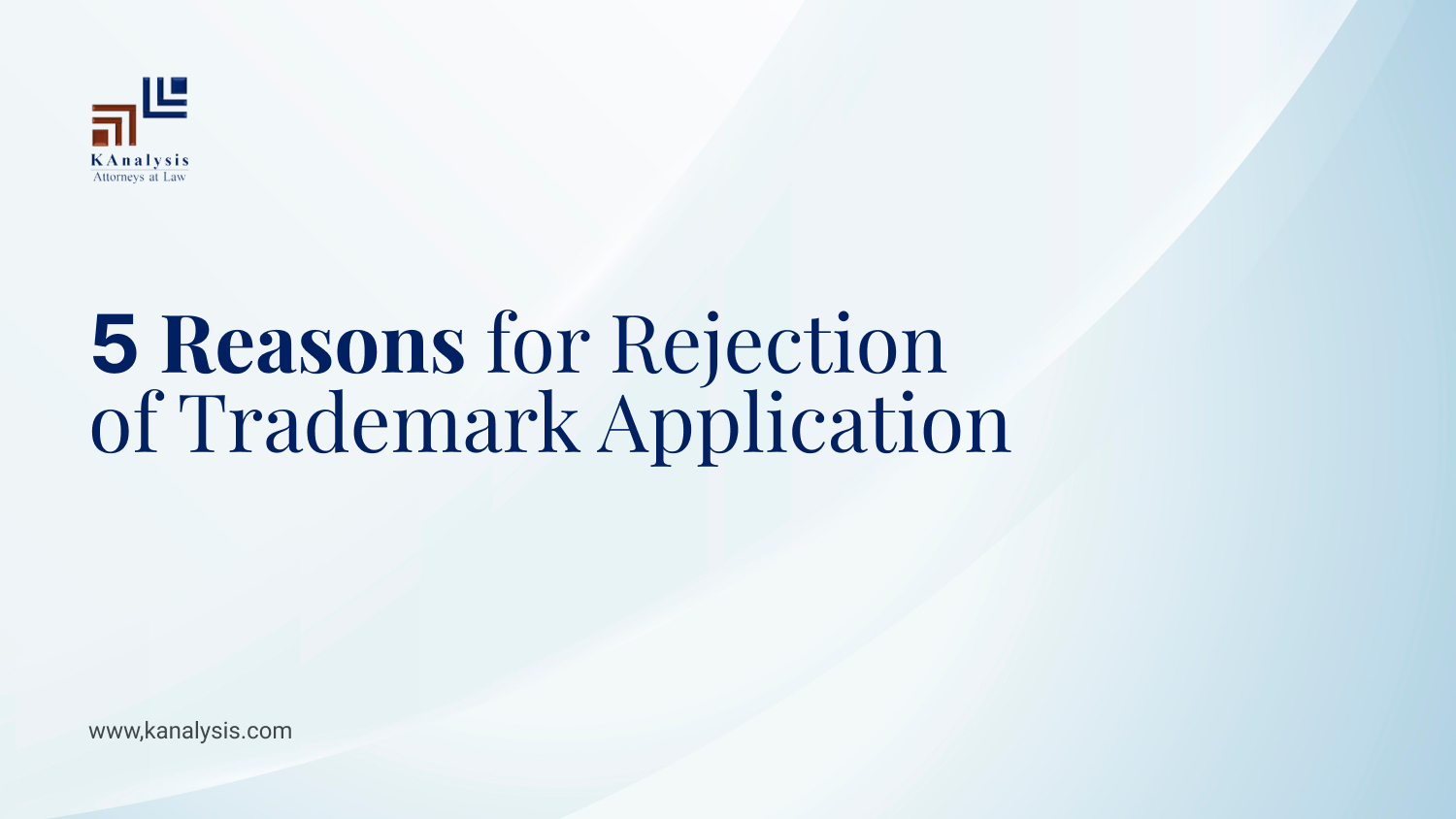There are several grounds upon which the registration of a trademark may be refused. Some of the most common grounds for refusal of the trademark are as follows:
Lack of distinctiveness:
A trademark must be distinctive in order to be eligible for registration. This means that it must be able to distinguish the goods and/or services of the applicant from those of others. Marks that are purely descriptive, generic, or commonly used in the relevant industry are generally not considered distinctive and may be refused for registration. Make sure your trademark is distinctive.
Likelihood of confusion with an existing mark:
If the trademark being applied for is similar to an existing mark that it is likely to cause confusion among consumers, it may be refused for registration. This is because trademark laws are intended to prevent consumer confusion by ensuring that similar marks are not used in connection with similar goods and/or services. So, whenever getting a trademark designed for your business, make sure you do not copy the existing one.
Deception or confusion:
If a trademark is likely to deceive or confuse consumers, it may be refused for registration. For example, a mark that misleads consumers as to the nature, quality, or origin of the goods and/or services, it may be refused for registration.
Scandalous or immoral marks:
Marks that are scandalous or immoral in nature may be refused registration. This includes marks that are offensive, vulgar, obscene or that are otherwise contrary to public policy.
Merely a surname:
Marks that consist solely of a surname may be refused registration, unless the applicant can show that the mark has acquired distinctiveness through use.
Overall, grounds for refusal of trademark registration are intended to ensure that only eligible marks get registered and to prevent marks, that are likely to cause confusion or that are otherwise be inappropriate, from being registered. By enforcing these grounds, the government can help to protect the rights of trademark owners and to prevent disputes over the use of trademarks.
If you would like to discuss any related query, reach out to our team at info@kanalysis.com
Subscribe to our monthly newsletter here and read all our blogs here




